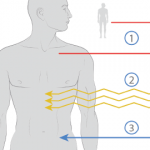 Editor’s note: EULAR 2020, the annual European Congress of Rheumatology, which was originally scheduled to be held in Frankfurt, Germany, starting June 3, was moved to a virtual format due to the COVID-19 pandemic.
Editor’s note: EULAR 2020, the annual European Congress of Rheumatology, which was originally scheduled to be held in Frankfurt, Germany, starting June 3, was moved to a virtual format due to the COVID-19 pandemic.
EULAR 2020 e-CONGRESS—In the past several decades, the field of rheumatology has advanced in no small part due to an improved understanding of how the immune system works. The beautiful symphony created by each instrument of the adaptive and innate immune systems is quite a thing to behold, and researchers and clinicians are adding to this harmony by using components of the immune system as therapeutics.
At the 2020 European e-Congress of Rheumatology, June 3–6, the session titled, Dendritic Cells as Therapeutics focused on this very topic, both from a conceptual perspective, as well as with a practical focus on treatments currently approved or being tested.
Clinical Use
Catharien Hilkens, PhD, reader in immunotherapy, The Medical School at Newcastle University, Newcastle upon Tyne, U.K., began the lecture series by discussing how dendritic cells in their natural state serve as professional antigen-presenting cells and are equipped to initiate adaptive immune responses in the body. Given this ability, dendritic cells have been used in the treatment of cancer, autoimmunity and for patients who have undergone organ transplants. Example: In dendritic cell-based cancer immunotherapy, dendritic cells can be collected from patients, modulated outside the body and reimplanted to prime the immune system to eliminate the tumor. Dendritic cells have also been used in vaccines to present tumor-associated antigens to the patient’s immune system and prime the immune system to recognize and act against the tumor while the patient receives other cancer therapies, such as chemotherapy and monoclonal antibodies.1
With respect to organ transplantation, cell-based therapies with dendritic cells offer the potential to provide donor-specific tolerance after transplant. This is an improvement over typical immunosuppression regimens, which lack specificity and leave transplant recipients at risk of infection, cancer, medication-related toxicity and chronic rejection.2 A significant strength of dendritic cell-based therapy in transplant patients is the opportunity to create allograft-specific tolerance and promote long-term allograft survival.
Dr. Hilkens noted that, in autoimmunity, dendritic cells promote activation and differentiation of autoreactive effector T cells. If this unwanted activation could be reversed and if immune regulation could be restored, then self-tolerance should return. Human tolerogenic dendritic cells have been studied to treat inflammatory arthritis and other conditions because they produce high levels of interleukin (IL) 10 and, in mixed cultures, dominate mature, pro-inflammatory dendritic cells and down-regulate T cell activation.3
In 2017, Dr. Hilkens and colleagues published a phase 1 study of intra-articular tolerogenic dendritic cells in patients with inflammatory arthritis and determined that such therapy appears safe and feasible in practice.3 This study was related to prior work by another research team that studied the safety and clinical effects of autologous dendritic cells modified with a nuclear factor κB (NF-κB) inhibitor exposed to four citrullinated peptide antigens. These cells were injected intradermally into 18 human leukocyte antigen genotype-positive RA patients with citrullinated peptide-specific autoimmunity. The study found such an injection to be safe and associated with a reduction in effector T cells, an increased ratio of regulatory to effector T cells and decreased serum concentrations of several cytokines.4
Imaging
The session’s next speaker was I. Jolanda M. de Vries, PhD, a professor in the Department of Tumor Immunology, Nijmegen Centre for Molecular Life Sciences, The Netherlands. Her talk focused on the important role of imaging in tracking cell-based therapies.
Dr. de Vries and others have noted that the success of cellular therapies depends a great deal on the accurate delivery of cells to target organs, such as delivery and subsequent migration of dendritic cells to regional lymph nodes to effectively stimulate the immune system. Therefore, it’s important that researchers and clinicians have the ability to track dendritic cells in the body.
Magnetic resonance imaging (MRI), position emission tomography/single photon emission computed tomography (PET/SPECT), bioluminescence/fluorescence imaging and multimodal imaging have all been used in pre-clinical studies for the purposes of tracking dendritic cell-based therapies, but transfer to clinical practice has remained scant.5,6 Dr. de Vries noted this is an important area of needed growth because in vivo imaging can serve as a drug development tool to improve the understanding of mechanisms of action for treatments, predict efficacy by stratifying patients into probable responders and non-responders to treatment, and serve as a non-invasive means to identify potential loss of efficacy or resistance to treatment.7
To date, much of the work on in vivo tracking of cellular therapies has been conducted in the field of oncology, but it’s clear these tools will also be valuable as applied to therapeutics for autoimmune diseases.
Implications for Rheumatology
The session concluded with two abstract presentations that described the application of dendritic cell therapy to rheumatologic disease.
Victoria Werth, MD, professor of dermatology, the Hospital of the University of Pennsylvania and the Veteran’s Administration Medical Center, Philadelphia, presented a study of BIIB059, a humanized monoclonal antibody targeting BDCA2 on plasmacytoid dendritic cells, in patients with active cutaneous lupus erythematosus. In a randomized, placebo-controlled trial of 132 patients with active cutaneous lupus erythematosus, subacute cutaneous lupus erythematosus or chronic cutaneous lupus erythematosus, BIIB059 demonstrated a significant reduction in Cutaneous Lupus Erythematosus Disease Area and Severity Index (CLASI) A scores compared with baseline. BIIB059-treated patients were also more likely to achieve CLASI-50 and a greater than 7 point reduction in CLASI-A scores from baseline compared with placebo. The study also demonstrated a significant dose-response relationship with no significant safety concerns.
In the next presentation, Yuliya Kurochkina, PhD, Research Institute of Clinical and Experimental Lymphology, Siberian Branch of the Russian Academy of Sciences, Novosibirsk, Russia, presented work on the immunosuppressive effect of tolerogenic dendritic cells on autologous T cells in patients with rheumatoid arthritis (RA). Key findings: The T cells in RA patients were sensitive to the suppressive effect of autologous dexamethasone-modified dendritic cells, and autologous dexamethasone-modified dendritic cells suppress autoreactive T cells via induction of apoptosis, anergy and regulatory T cell activation.
The entirety of the session was an excellent example of bench-to-bedside research and how the fields of basic immunology and clinical rheumatology are deeply intertwined. Given the great potential for dendritic cells to restore tolerance in a multitude of autoimmune diseases, the future looks bright for this and other types of cell-based therapy. Moreover, given the geographic diversity of the speakers in this session, it’s clear such advances will truly represent a global effort and may help create the next frontier in therapeutics for clinicians around the world.
Jason Liebowitz, MD, completed his fellowship in rheumatology at Johns Hopkins University, Baltimore, where he also earned his medical degree. He is currently in practice with Skylands Medical Group, N.J.
References
- Sadeghzadeh M, Bornehdeli S, Mohahammadrezakhani H, et al. Dendritic cell therapy in cancer treatment; the state-of-the-art. Life Sci. 2020 Aug 1;254:117580. Epub 2020 Mar 20.
- Samy KP, Brennan TV. Dendritic cell therapy in transplantation, phenotype governs destination and function. Transplantation. 2018 Oct 1;102(10):1593–1594.
- Bell GM, Anderson AE, Diboll J, et al. Autologous tolerogenic dendritic cells for rheumatoid and inflammatory arthritis. Ann Rheum Dis. 2017 Jan;76(1):227–234.
- Benham H, Nel HJ, Law SC, et al. Citrullinated peptide dendritic cell immunotherapy in HLA risk genotype-positive rheumatoid arthritis patients. Sci Transl Med. 2015 Jun 3;7(290):290ra87.
- de Vries IJM, Lesterhuis WJ, Barentsz JO, et al. Magnetic resonance tracking of dendritic cells in melanoma patients for monitoring of cellular therapy. Nat Biotechnol. 2005 Nov;23(11):1407–1413.
- Perrin J, Capitao M, Mougin-Degraef M, et al. Cell tracking in cancer immunotherapy. Front Med (Lausanne). 2020 Feb 14;7:34.
- Fruhwirth GO, Kneilling M, de Vries IJM, -et al. The potential of in vivo imaging for optimization of molecular and cellular anti-cancer immunotherapies. Mol Imaging Biol. 2018 Oct;20(5):696–704.
